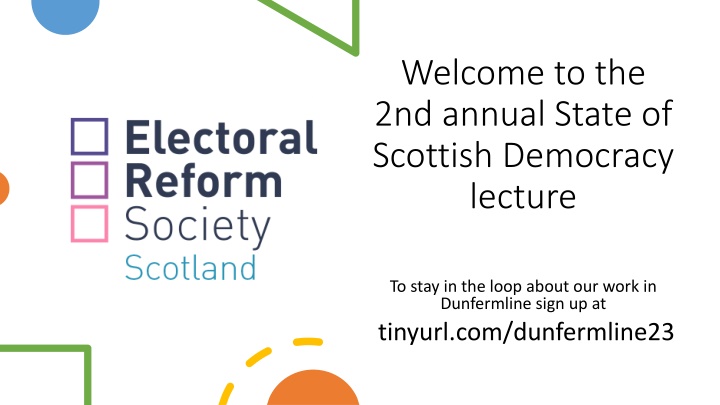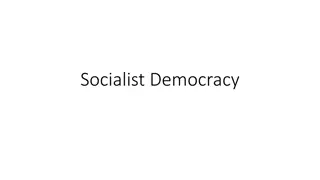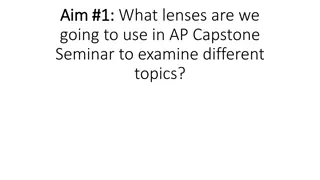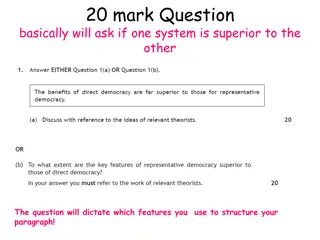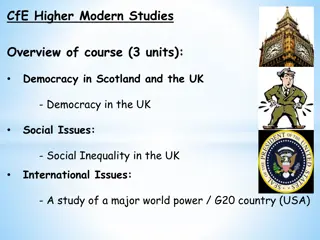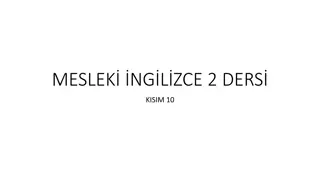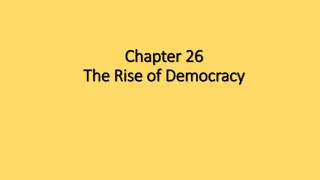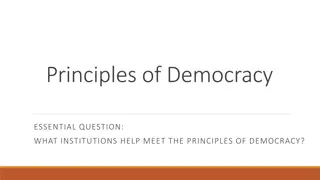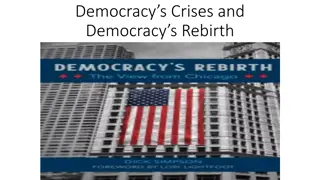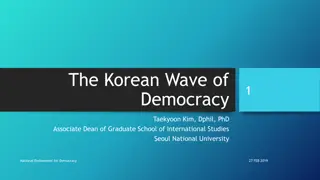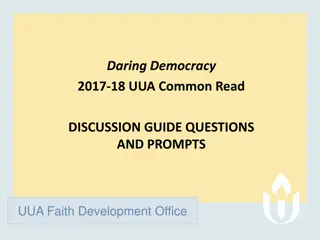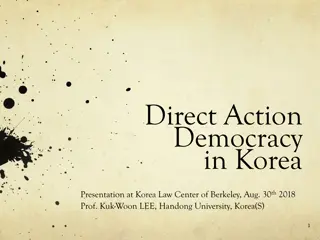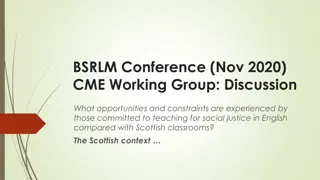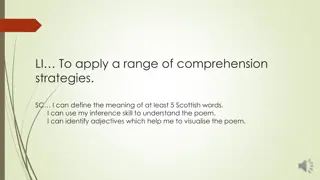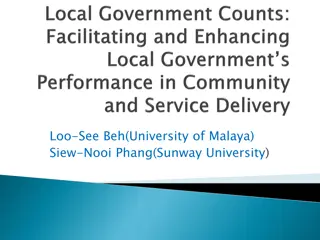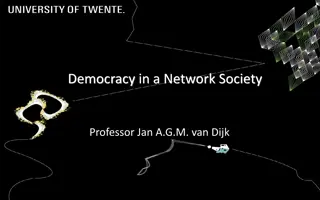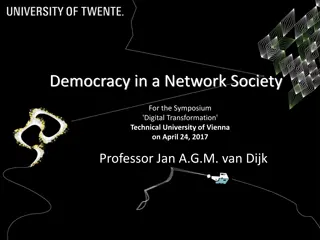The State of Scottish Democracy: A Critical Look at Local Governance
Explore the complex landscape of Scottish democracy, focusing on the challenges and opportunities within local government structures. From the imbalance between massive regional councils and volunteer-led communities to the evolution of community trusts, the lecture questions the future direction of democracy in Scotland.
Download Presentation

Please find below an Image/Link to download the presentation.
The content on the website is provided AS IS for your information and personal use only. It may not be sold, licensed, or shared on other websites without obtaining consent from the author.If you encounter any issues during the download, it is possible that the publisher has removed the file from their server.
You are allowed to download the files provided on this website for personal or commercial use, subject to the condition that they are used lawfully. All files are the property of their respective owners.
The content on the website is provided AS IS for your information and personal use only. It may not be sold, licensed, or shared on other websites without obtaining consent from the author.
E N D
Presentation Transcript
Welcome to the 2nd annual State of Scottish Democracy lecture To stay in the loop about our work in Dunfermline sign up at tinyurl.com/dunfermline23
Electoral Reform Society s State of Scottish Democracy Lecture Lesley Riddoch @lesleyriddoch www.lesleyriddoch.com
communities need control over decisions that affect their lives.
Amen But Scotland has Europe s weakest local democracy thanks to massive country-sized councils and also its strongest local democracy thanks to 350 volunteer-led, unfunded, buyout communities. SO WHICH ARE WE TALKING ABOUT?
So community trusts have developed to fill the local void
Will Democracy Matters square this Scottish paradox? Or ignore the problems with formal local democracy . load more powers and responsibilities onto some valiant, over-stretched communities (but not others) .. and leave our massive regional councils intact?
How did we get here? In 1973, 400 councils were cut to 53 district and 9 regional authorities by Ted Heath. In 1996, 62 councils were cut to 32 single-tier authorities by John Major. This Tory centralisation was not imposed on England where 10,480 parish and burgh councils have annual budgets of 1m, dwarfing Scotland s 1,200 community councils on 400 apiece.
So local democracy in Scotland is at a crossroads
COMMUNITY NORWAY SCOTLAND COMMUNITY MEANS VOLUNTEERS COMMUNITY MEANS MUNICIPALITY
Capable people generally govern themselves Scotland 32 11 Norway 400
But Scotlands communities have had to prove themselves worthy first. One by one. Over quarter of a century.
EIGG MIRACLE; 2 BED FOR 40K
SELF BUILDING WITH NATIVE WOOD
STRONTIAN COMMUNITY ENERGY
Incredible stories but elsewhere truly local councils do the heavy lifting
So why not here? Fears of unaffordability based on current pay grades & bureaucracy Fears of local favoritism & corruption Fears of apathy and lack of local capacity. City-based professionals who don t get out enough and won t reflect on the topdown structures and elitist presumptions that riddle British and Scottish democracy.
So communities or councils? So communities or councils? It may seem simpler and cheaper to forget the mess that is formal local democracy and concentrate on feisty community groups instead. After all these highly motivated local volunteers care enough to run the vital assets councils, churches, quangos, lairds and charities have left behind. BUT Development Trust volunteers must grapple daily with rules and regulations that occupy armies of highly paid professionals in every formal wing of government. They cannot take on more powers or budgets without dependable core funding to pay local directors. If more planning and budgetary powers are devolved to (some) communities, membership-led trusts will turn into mini-councils & feel obliged to tackle every local problem without statutory powers, dependable long-term funding or the democratic validation of community-wide elections. So here s a revolutionary thought why not do both? Like every mature democracy around us.
Especially Norway Norway s small councils double & treble up portfolios, Cooperate with neighbours Hire Education Directors who are also part-time teachers. Pay normal salaries Home lies a walk not two day s drive away, so council meetings are held in the evenings, day-jobs continue and councillors aren t paid. Poorer councils are supported by central transfers and very small councils cooperate with neighbours - something private outsourcing companies and large monopoly councils find hard. Higher participation with 12k councillors in Norway v 1.2k councillors in Scotland.
Thank you for attending the 2nd annual State of Scottish Democracy lecture To stay in the loop about our work in Dunfermline sign up at tinyurl.com/dunfermline23
